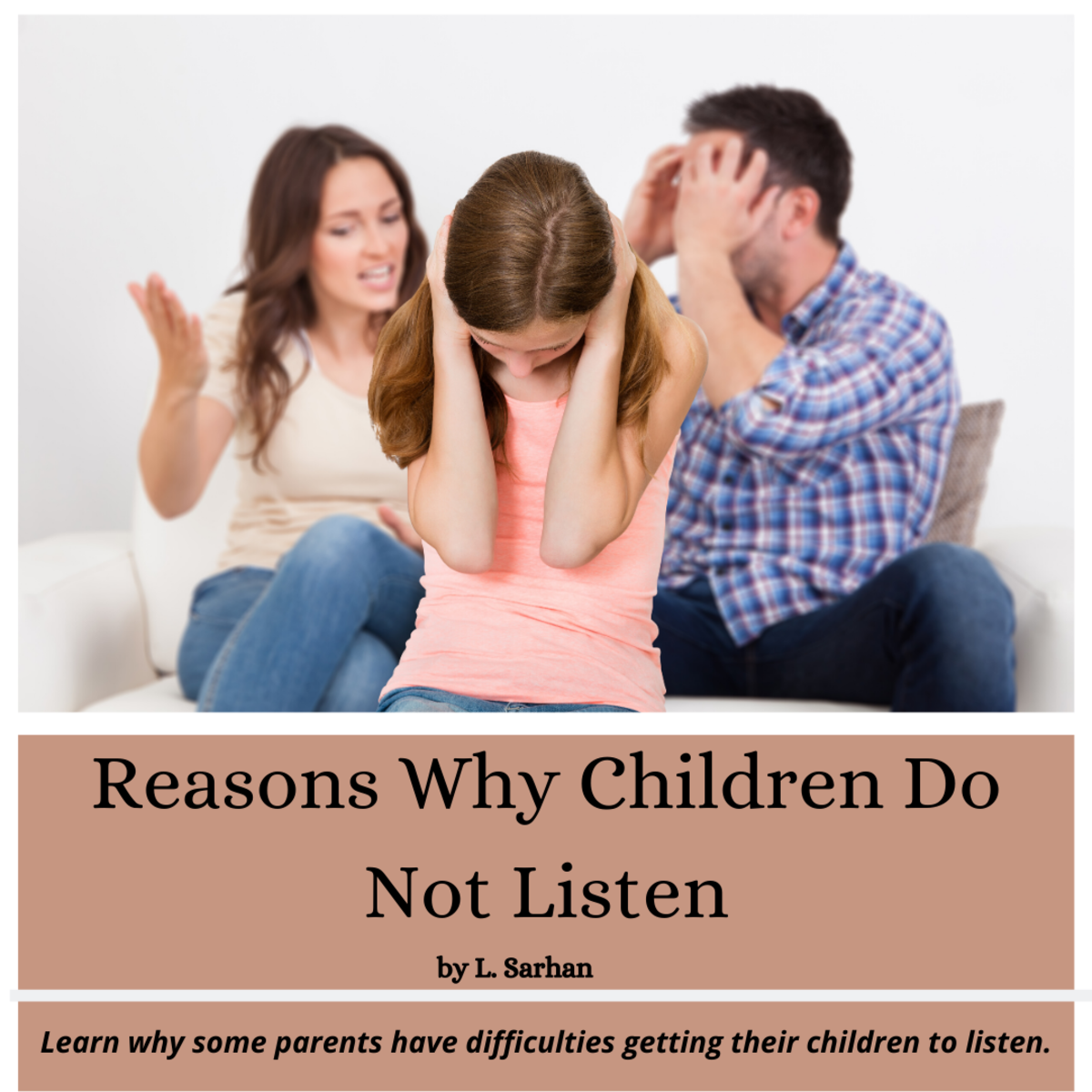How and Why You Should Listen To Your Children
There are many strategies for reducing the need for discipline by parents. Instead of relying on time out and other punishments, it helps to understand the reasons behind your child's outbursts.
If you find yourself doing battle with your child and making no progress, my top tip would be to stop focusing on discipline ... and start listening.
Communicating With Your Kids
One of the biggest frustrations children experience is the feeling that they are not being heard.
By the time they become teenagers, children with noisy siblings, busy parents or simply the nature of an introvert often feel that any energy spent trying to get people to listen would be wasted. If nobody’s going to listen, why bother talking?
When a desperate attempt to communicate in early life is met by discipline including ‘time out’ or grounding for continuing an outcry beyond the tolerance level of a parent, the parent often gets the desired outcome – peace and quiet – but at what cost?
5 Simple Steps for Effective Communication with Your Children
Step 1: Next time you’re passing a cheap store selling miscellaneous items, pop in and purchase an egg timer. (I am surprised by how many homes don’t have this most basic item on hand.) You can expect change from five dollars in the right store.
Step 2: Stop everything when your child starts wailing about an injustice or a demand they consider worthy of immediate attention.
Step 3: Tell your child (or each of your children) they will have exactly three minutes to explain to you what the problem is and what they’d like you to know before you make your decision. You will listen to every word they say, but you don’t want to hear another word about it after their time has finished.
Step 4: Turn over the egg timer. There must be no interruptions until the timer runs out and the child must stop speaking when, or before, the three minutes expires. Each child takes a turn.
Step 5: Make clear to your child that you understand how they feel and you respect their effort to explain it to you so clearly. Tell them your decision. Acknowledge the points you agree with, and give them honest and appropriate feedback.

Talking With Teenagers
We all remember how tough it is to be a teenager. Teens face many issues for the first time and struggle to find their place in the world. They have so many questions, but where do they find the answers?
In this day and age of computer technology, most teenagers will turn to the internet. They type in a question and read the advice and opinions of complete strangers. In theory, this is a great idea but do you really want to exclude yourself from conversations about problems in your child's life?
Teenagers commonly complain about parents who won't listen. There's nothing new about that. My belief, however, is not really that parents won't listen - it is more a problem of parents and teenagers not knowing how to talk to each other.
Once the line of communication between parent and child is broken, it is extremely difficult to restore.
Getting Teenagers to Stop and Talk

Getting The Conversation Started
Parents struggling with sullen, withdrawn teenagers have plenty of time to reflect on how things might have been different had they taken the time to listen in younger years. But how do you set aside an hour to chat every time a feisty 8-year-old has a grievance they want to air?
And how can you possibly hope to keep lines of communication open with children as they enter puberty and the minefield of emotions beyond?
Instead of wasting half an hour trying to subdue conflict between siblings, a simple five dollar investment can restore peace in your home in just minutes. Even the busiest parent can find three minutes between chores to implement this simple strategy.
It is most effective if you start when your child is young. Most children old enough to attend school are old enough to participate.
If Your Child Stays Angry ...
- Food Allergies Testing for Anger Management in Children
Anger could be a symptom of food allergies. Before your child is labelled with a personality disorder, and prescribed medicine or therapy for anger management, undertake food allergy testing. This link takes you to my experience.
When Dad is The Problem
- I Hate My Dad — Trouble at Home
When a child says "I hate my dad", something is wrong. If you have trouble at home and would like to talk about it, this site is a safe place. There's lots of reasons why kids hate their dads.
More Helpful Hints
- You can give your child time to prepare for their speech, but of course they have to prepare quietly. They can make notes so they don’t forget important points, and they can present evidence including the broken toy smashed by a sibling or the toddler's teeth marks in their forearm.
- If the cause of the chaos is an outburst about you not giving permission for an unsupervised trip to the local shopping mall with friends, or refusing to spend money on something they want, or not letting them have their way on any of a million potential points of dispute, they should be encouraged to fill the entire three minutes with every good point they can think of to convince you to agree.
- One of the rules of this process is that you always reserve the right to think about what they say before giving your decision. Sometimes your response will be a quick one, but they should expect to wait respectfully for your answer. (You might need time to boil the kettle or make the bed or even go to work for the day before giving your answer, but the most important thing is that they know they have been heard.)
- If you don’t agree with their argument, you need to say why. Hone your own skills in explaining your decision – and backing it up with your own reasons. You, too, may choose to turn the egg timer and have your say without interruption.
- As your child grows older, they will learn to negotiate. Suddenly they learn the importance of reassuring you about their motives, putting their own limitations and restrictions in place, and anticipating your concerns. You’ll find yourself fighting the grin that threatens to spread from ear to ear when they offer to undertake tasks around the home, or complete school assignments quickly and without argument in exchange for the purchase of a new computer game they previously would have just demanded
- If you doubt they’ll deliver what they promise, have them put it in writing. Both sign the paper – or have them send you the agreement via an email, just for fun – and acknowledge that if they break their word it will affect future outcomes.
There is a lot of fine-tuning that makes the system work most effectively, and additional advantages you might not expect. You’ll be able to adapt the concept to meet your family’s needs, so grab an egg-timer and have it on stand-by.
The next time your kids feel like you’re not listening, give them the chance to present their case. And make sure you pay attention for the full three minutes, listening carefully to every word. With the right attitude, you’ll be surprised how much you can learn.
© 2012 LongTimeMother








